Stephen Bradberry
Chicago native Stephen Bradberry is a veteran community organizer who has worked with low- and moderate-income families and individuals for 18 years. His work has centered on organizing public interest campaigns to actively involve low-income families in addressing the social problems they face everyday. He has led campaigns promoting a living wage, preventing predatory lending, lead poisoning prevention in children, and increasing voter participation. A graduate of Dillard University, Mr. Bradberry was a public school instructor working with children from early childhood through high school. Mr. Bradberry connected with the Umoja Committee, which produces the Celebration of the African American Child each spring at Congo Square.
Working as a community organizer, Mr. Bradberry led efforts to institute living wage legislation, orchestrated a successful campaign to win prohibition of dry-sanding of lead-based paint in New Orleans and blood screening for at-risk children under six, and worked tirelessly on behalf of New Orleans’ displaced poor in the wake of Hurricanes Katrina and Rita. Mr. Bradberry has also worked to coordinate national campaigns to improve the quality of life and enfranchise low- and moderate-income families and individuals across the United States. In 2005, Mrs. Ethel Kennedy and Senator Edward Kennedy presented Bradberry with the Robert F. Kennedy Human Rights Award for his efforts on behalf of the poor. At the event, then-Senator Barack Obama congratulated Bradberry for his work to defend the rights of the poor in New Orleans, saying, "You deserve this day in the sun," and noting that Bradberry’s social activism plays to Robert Kennedy's vision of a better world: "Somewhere there's always been people like Steve Bradberry who believe that this isn't the way it's supposed to be. People who believe that while evil and suffering will always exist, this is a country that has been fueled by small miracles and boundless dreams."
In May 2016, Stephen Bradberry had visited Switzerland and Austria to participate in a number of events organised by the Robert F. Kennedy Human Rights Foundation Switzerland and the European Tolerance Center in Fresach, Austria.
School Visit
Stephen kicked off his stay in Switzerland on Monday, May 9, with a visit at Kantonsschule Enge in Zurich, the city’s largest senior high school. This school visit was a collaboration with myclimate, one of the world’s leading non-profit climate protection organisations. After Christoph Karlo, the President of the Robert F. Kennedy Human Rights Foundation Switzerland, had introduced the human rights education program Speak Truth To Power to teachers and students at the school, Stephen Bradberry held a lecture about climate change and human rights, and of course he focused on his own experiences with Hurricane Katrina and the Deepwater Horizon oil spill in the Gulf of Mexico. The event had been concluded after a number of interesting questions from some of the 150 students in attendance.
University Lecture
On May 10, Stephen Bradberry had been invited to speak at the University of Zurich about the human rights implications of climate change and his own experiences with internally displaced people and human rights challenges caused by climate catastrophes such as Hurricane Katrina. Stephen Bradberry had been introduced by Professor Francis Cheneval, the Chairman of Political Philosophy at Zurich University. This lecture was made possible by the Competence Center for Human Rights Studies at Zurich University (Sabrina Ghielmini, Professor Christine Kaufmann, Gabriela Medici)
US Mission in Geneva
On May 11, Stephen Bradberry had participated in a high-level conversation at the US Mission in Geneva with diplomats representing various nations and/or organizations/institutions from several continents and provided his personal views about human rights implications of climate change and how we should deal with them in the future. According to Stephen Bradberry, climate change is a reality we have to take seriously. However, the main population still doesn’t understand that. Stephen Bradberry emphasized that human rights treaties can help grassroots campaigns in their work and that the consideration of relevant international instruments helps to act with confidence in, for example, the political sphere. With regard to this, it has become clear that it is tremendously important to increase awareness of the work done, for example, in International Geneva. It was also emphasized that terms like “common concern” and “sustainable development” and treaties/protocols, like the Paris Agreement, will not solve the problems if there is no sincere willingness to solve them. Each individual is responsible to contribute to the betterment of society. There is the danger that we justify non-sustainable activities on the basis of treaties that then become hollow. This event was organized in cooperation with the US Mission in Geneva under the lead of David Sullivan. Stephen Bradberry of course did not officially represent the US Government, nor were his views and opinions necessarily those of the US Government.
Overall topics of relevance
The importance of adaptation measures under Article 7 of the new Paris Agreement:
Adaptation is a global challenge faced by all with local, subnational, national, regional and international dimensions;
Adaptation action should follow a country-driven, gender-responsive, participatory and fully transparent approach taking into consideration vulnerable groups, communities and ecosystems;
Parties should strengthen their cooperation on enhancing action on adaptation, taking into account the Cancun Adaptation Framework, including with regard to Sharing information, good practices, experiences and lessons learned;
What has to be considered with regard to the implementation of adaptation measures to climate change?
How can human rights be protected despite the impacts of climate change?
How is it possible to protect society from the consequences of climate change?
What are our individual obligations with regard to the protection of human rights?
How can grassroots campaigns help in a sustainable recovery process after disasters like the ones caused by Hurricane Katrina?













